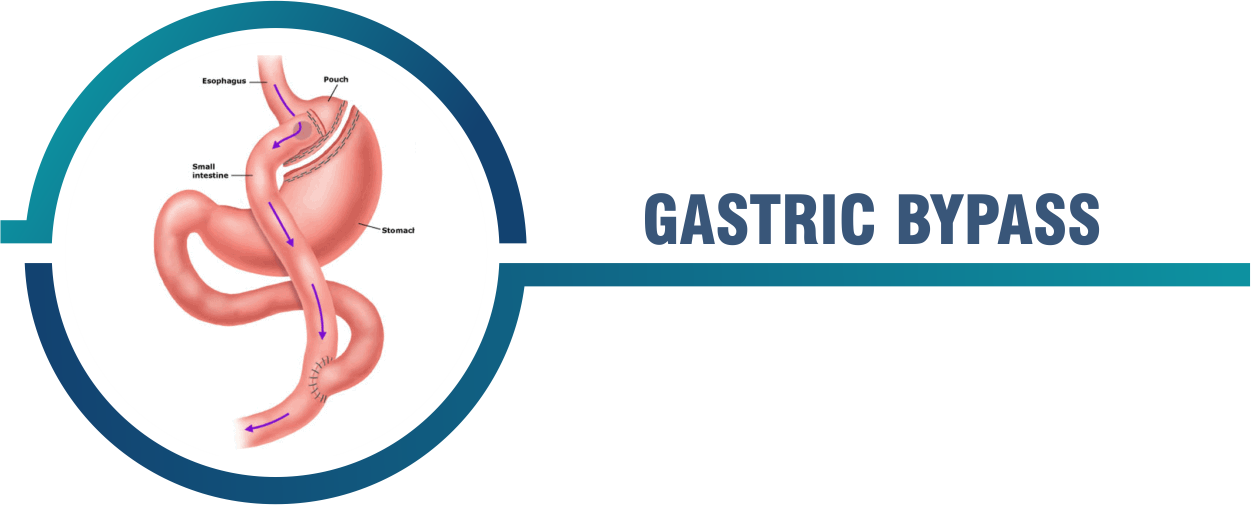
About Gastric Bypass
Gastric bypass, commonly known as Roux-en-Y (roo-en-wy) Gastric Bypass, is a kind of weight-loss surgery that entails separating a small pouch from the stomach and attaching the newly formed pouch straight to the small intestine. Following a gastric bypass, eaten food will travel through this little pouch of the stomach and into the small intestine, skipping most of the stomach and the first part of the small intestine in the process.
One of the most often carried out types of bariatric surgery is gastric bypass. When diet and exercise have failed or when you are experiencing major health issues as a result of your weight, a gastric bypass procedure is performed.
Symptoms
- When your body mass index is greater than 35.
- If you have other issues like diabetes, high blood pressure, sleep apnea, etc.
- If additional metabolic issues are being caused by your progressively rising weight.
- If you are putting on weight despite following a rigorous diet.
Risk Factor
Gastric bypass and other weight-loss procedures can have significant long- and short-term health hazards, much like any major operation.
Similar to any abdominal surgery, there are risks involved with the procedure.
These risks include:
- Excessive Bleeding.
- Infection.
- Negative effects of anesthesia.
- Clots of Blood.
- Breathing or Lung issues.
- Gastrointestinal system leakages.
The following long-term risks and consequences of gastric bypass:
- Stomach Obstruction.
- Dumping syndrome, which results in vomiting, nausea, and diarrhea.
- Gallstones.
- Hernias.
- Reduced blood sugar (hypoglycemia).
- Malnutrition.
- A perforated stomach.
- Ulcers.
- Vomiting.
- Rarely, gastric bypass problems can be fetal.
Investigations
- A Complete Blood Count (CBC).
- Urinalysis and a Chemistry Panel.
- Chest X-Ray and Electrocardiogram.
- Gallbladder Ultrasound to Look for Gallstones.
- Pulmonary Function Test.
- Echocardiogram.
- GI Evaluation.
- Cardiology Evaluation.
- Psychiatric Evaluation.
- Sleep Study Test.
| Procedure | India | Turkey | Dubai |
| (Price in USD) | (Price in USD) | (Price in USD) | |
| Gastric Bypass | 7000 | 5500 | 16000 |
Note : This is an approximate cost and may vary depending on various condition of the patient health after physical evaluation.
Treatment Options
Side Effects
Benefits
Long-lasting weight loss may be possible with gastric bypass. The type of surgery you undergo and the modifications you make to your lifestyle will affect how much weight you lose. Within two years, you could be able to eliminate 70% or perhaps more of your extra weight. Gastric bypass may help with or resolve diseases that are frequently brought on by being overweight, such as: • Gastroesophageal reflux disease • Heart condition • Blood pressure problems. • High triglycerides • Obstructive snoring • Diabetes type 2 • Stroke • Infertility Your capacity to carry out everyday tasks more easily after a gastric bypass may enhance your quality of life.
Success Rate
Around 50 to 60 percent of extra weight is successfully lost by gastric bypass surgery patients, and the results last for up to five years.
